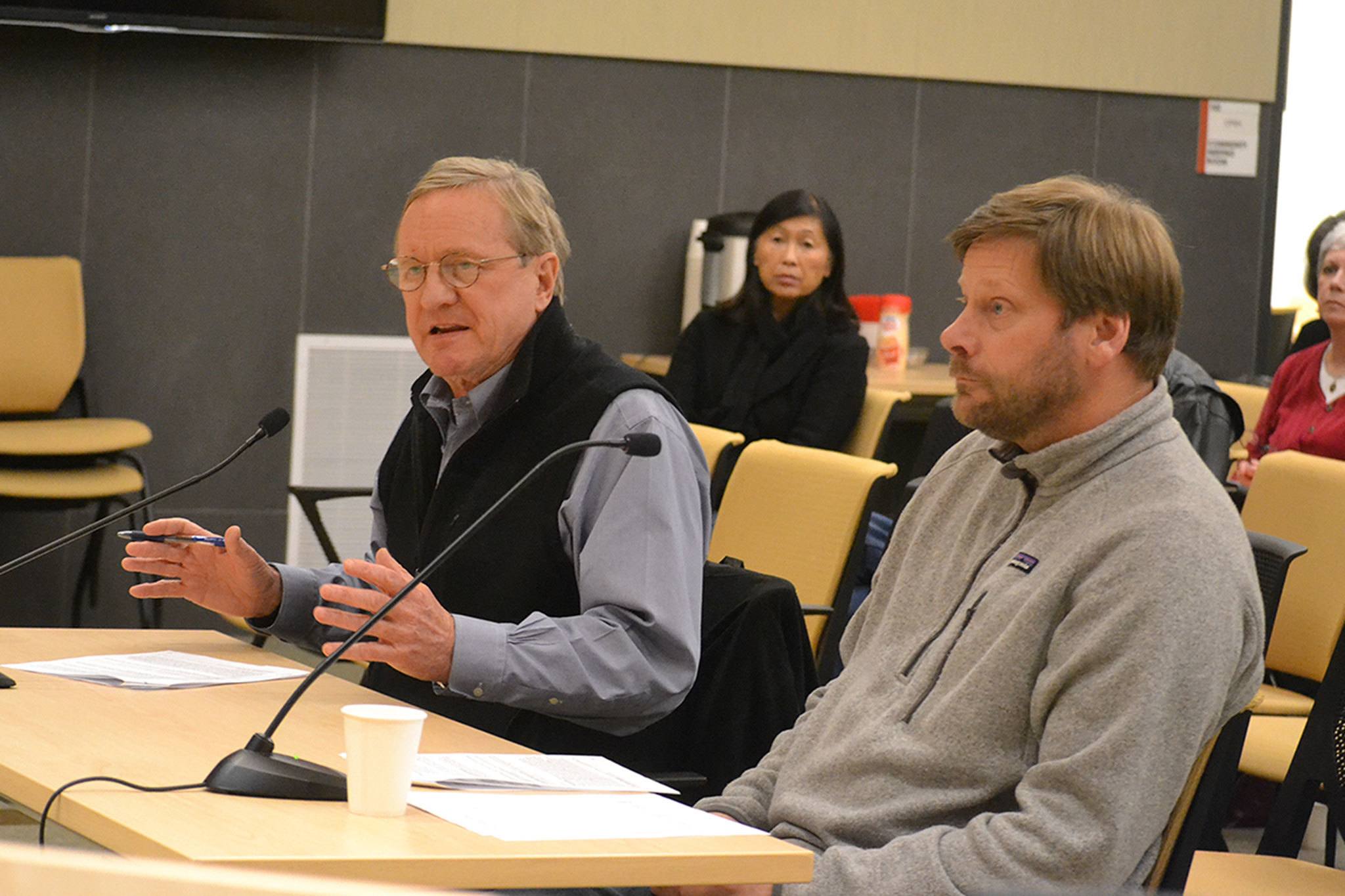State representatives Steve Tharinger, incumbent Position 2, and Mike Chapman, Position 1, for the 24th legislative district now have the City of Sequim’s Christmas list.
The pair met with Sequim city councilors on Monday, Dec. 12, to hear the city’s requests for funding and reform in the upcoming legislative session slated to begin Jan. 9 in Olympia.
City councilors unanimously approved their priorities in November that range from human service funding to public works needs to public safety support to economic development to schools.
Some of the specific requests included funding the second phase of the Guy Cole Center at $700,000, completing the Simdars Interchange ($4 million-$5 million), and funding safety improvements along U.S. Highway 101 such as improving Happy Valley Road’s access to the highway (about $400,000).
Tharinger said the state’s capital budget is going to be tough in 2017 as they match school bond amounts that were passed statewide.
“So it might be tough to get money for Guy Cole this cycle,” he said.
Tharinger said funding for Simdars could continue to wait for funding as well.
“It’s a tough one because what drives transportation dollars are accidents, not economic development,” he said.
Sequim city manager Charlie Bush said one of the city council’s priorities is fully funding the McCleary decision because it’s “holding us back from addressing other issues.”
“We need help from the state to get this worked out so we can ensure we have a better future for our community,” he said.
City councilors also recommended replacing the super majority of at least 60 percent approval for passing school bonds with at least a 50 percent vote.
Chapman said besides taxes and economic development, one issue lost in discussions about supporting schools is that many rural schools could not sustain a moderate earthquake.
“We’ll have to have that conversation to push the needle a little more,” he said.
Tharinger said to solve the McCleary issue “we need to fund our schools (and) it’s going to require additional revenue.”
“I just don’t know how we’re going to do it with our existing revenue,” he said. “That’s always a tough discussion.”
City councilor Bob Lake spoke out for state support for Cascadia earthquake and other emergency preparations. He said in order for the city’s Emergency Operations Center in the Transit Center to function they’ll need more radios and antennas to help carry the Olympic Peninsula in an emergency until Clallam County officials, who are mostly volunteers, can setup as evidenced in a training scenario earlier this year.
City councilors also suggested reforming public information requests and amending publication requirements go from a newspaper of record to the city’s website.
Deputy Mayor Ted Miller said the public information reform could prevent multiple factors including frivolous requests.
City attorney Kristina Nelson-Gross said the state’s auditor’s office representatives said last year jurisdictions statewide saw upwards of $60 million in uncompensated time and money spent on requests.
Tharinger said public records reform still needs a lot of work.
“There are groups in the Legislature who want to protect the public’s right to know,” he said.
As for newspapers of record, he said it’s “difficult to take on people who buy ink by the barrel” and since websites like Craigslist have cut into revenue, public notices are a big part of their revenue.
Some of the other items city councilors prioritized include finding funding for reconstruction or replacing the Elwha Bridge, fully funding the basic law enforcement academy, finding better funding for mental health systems, and redefining reclaimed water as a resource and not a waste water.
Chapman said he’s been assigned to the Transportation Committee in the Legislature and the Elwha Bridge is likely his No. 1 priority.
Tharinger said they’ll likely see some discussions about water too and there may be an opportunity to make changes for the city.
He finished the meeting saying, “we represent all the same people … The idea is to work together as much as we can. It’s the same taxpayer and dollar and being as efficient and integrated as possible is always a good thing.”



